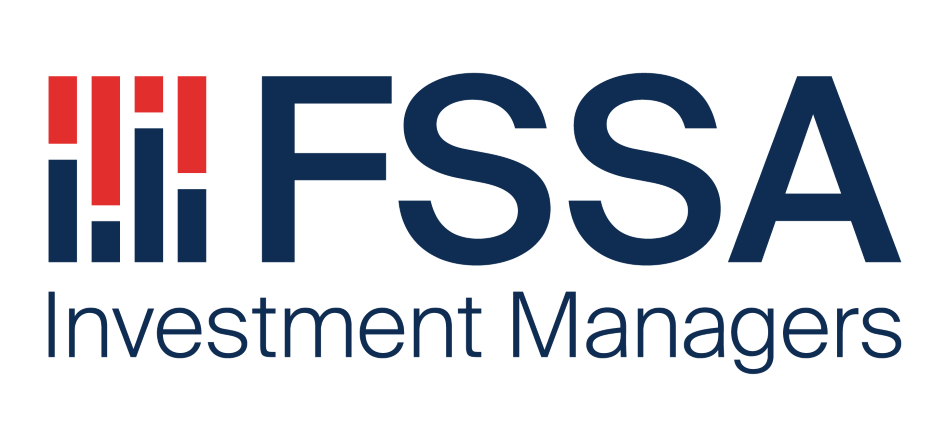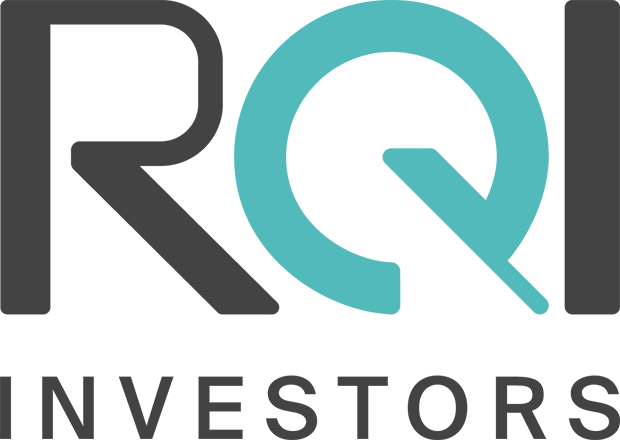Your search returned more than 50 results. The 50 most relevant results are displayed.
The ongoing swell of inflation and interest rates are taking the wind out of sails of growth, propelling value to the bow of the boat as long-term active investors look ahead for opportunities.
What if we could find investment opportunities based on how people say things, as much as what they say?
Does tilting towards dividend payments deliver excess returns?
On the surface Value underperformed throughout 2020, but once we remove technology stocks like Tesla and Amazon from the equation, we can see that Value kept up with the broader market. Entering 2021, we are witnessing a strong rebound in Value. How should investors be approaching tech companies?
Better profit margins, higher return on equity and superior share market returns are hallmarks of listed companies with more diverse executive teams, new research shows.
Just like momentum or quality, ESG can be approached as a filterable factor. Find out how it’s possible with Realindex Portfolio Manager Joanna Nash.
Dr Joanna Nash, senior quantitative portfolio manager at Realindex Investments, recently featured in FS Sustainability's podcast series. The episode explores how a singular issue like gender diversity can be used as an alpha signal as well as a qualitative measure of company risk and opportunity. Joanna discusses her ESG integration process and how gender diversity in company management can indicate potential investment opportunity.
What are zombie firms? How can they affect Australian investors?
The performance of Australian small caps has lagged behind the ASX100 over the last decade leaving many investors questioning whether an allocation to Australian small caps is worthwhile.
A 20-year dispute between US and Chinese regulators regarding the auditing of Chinese-domiciled but US-listed securities could soon be resolved. The Public Company Accounting Oversight Board (PCAOB) has recently signed a Statement of Protocol with the China Securities Regulatory Commission (CSRC) and the Ministry of Finance of the People’s Republic of China governing inspections and investigations of audit firms based in China and Hong Kong. This agreement establishes a specific, accountable framework to make possible complete inspections and investigations by the PCAOB of audit firms based in China and Hong Kong, as required under US law. While this new agreement is an important step forward, it should be noted that the agreement itself does not satisfy the HFCAA. Compliance with the agreement is ultimately what matters and US regulators will be monitoring compliance. The news of an agreement has provided some relief to investors and is an important step forward in resolving this dispute after significant uncertainly.
This final paper is somewhat shorter than the first two, and simply aims to look a little deeper into whether zombie firms appear in Realindex portfolios, and how a Quality factor acts as a repellent for these stocks. This is more important in Value-oriented portfolios as the potential appearance of lower quality “junk” firms, or even zombies, is higher here than in broader universes.
Systematic investor Joanna Nash discusses ways to reduce carbon emissions in portfolios.
Leveraging our recent paper, ‘Reducing carbon intensity in portfolios: Better news than you think’, which analysed the investment impact of reducing carbon exposure versus the benchmark; we turn our attention to how we can reduce carbon risk in our Value strategies.
The Realindex Australian Share Value-Class A Fund is a real achiever that, since its inception in 2008, has delivered long-term outperformance compared to its benchmark for investors.
“In some of our index focused strategies we can’t divest – so we need to let companies know which issues are important to shareholders.” Find out how investors can enact change from the top down with Realindex Portfolio Manager Joanna Nash.
There was a large jump in capital raisings – in April alone 26 companies in the S&P/ASX300 issued new stock. By the end of 2020, 104 of these companies had undertaken raisings - the most number of companies that had ever raised equity in single year - totalling almost $40 billion.
New data reveals stronger correlations between female executive participation and company performance/returns. Investors could be overlooking gender diversity as a predictor of profitability and share market returns, a new study shows. While correlations between corporate female participation and better investor outcomes have been highlighted before, Realindex Investments’ new study, ‘Beyond lip service: tracking the impact of the gender diversity gap’, looks beyond the easy to find board-level diversity data and into executive team composition for a clearer link.
Equity markets are currently at all-time highs. This has generated returns which, we believe, are unlikely to continue, so we need to think about where returns are likely to come from over the next 10 years. We need to think about how investors can position themselves to take advantage of this. This note highlights why Emerging Markets (EM) Value looks to be a market segment which appears – relatively speaking – to be attractive.
Over the last 5 years, China has been on the rise within the Emerging Markets. We have all heard the story of the China Dragon and the impressive growth that the Chinese economy has been able to achieve relative to other large economies since the early 1990s. Even more recently as its growth has reduced it is still achieving more than double the growth of the United States. We believe the increase in regulatory risk from both the US and domestically in China has been a large contributor to this fall. The question for investors is this: will it continue and where does the next risk lie?
On the 24th of February 2022, Russia invaded Ukraine. This has led to numerous sanctions being imposed upon the Russian regime by the international community. Sanctions are typically issued by governments targeting individuals, corporations or governments in order to force their compliance with laws, condemnation of actions or threats to peace. Sanctions usually take a diplomatic or economic form and aim to provide incentive for the target to change their course of action. Previous forms of sanctions include the US Government sanctioning Chinese military companies in response to perceived national security threats , and the European Union sanctioning individuals from Russia, Myanmar and Syria in response to terrorism and human rights infringements in those countries . The current round of Russian sanctions have primarily focused on damaging the Russian economy through asset freezes and restricting Russian access to the global banking system. The imposition of these sanctions have led to: • Restrictions on the financing of Russian projects and withdrawal of foreign capital • Increased costs of doing business in Russia due to the expulsion of several Russian banks from SWIFT, Mastercard and Visa payment networks • Numerous corporations withdrawing their business operations from Russia • Freezing of overseas assets owned by Russians • Restrictions on trade conducted with Russia • Halting of the Nord Stream 2 gas pipeline On top of government sanctions, we have also witnessed companies behaving proactively. For instance, Shell, ExxonMobil and BP have all announced their divestment and exit from all Russian oil and gas assets . Although existing sanctions have targeted a significant proportion of the Russian economy, they have largely avoided the energy sector due to Europe’s dependency on Russian supplies. There is still the possibility of future sanctions that target the oil and gas trade from Russia which would have a significant impact on global oil prices and a very direct effect on the Russian economy .
Read regular news updates, research papers, investment strategy updates and thought pieces from our leading investment experts.
Today, Realindex Investments, an active quantitative equities manager within the First Sentier Investors Group, will be known as RQI Investors. Coinciding with the investment manager’s 15-year anniversary, this name change is the first undertaken since RQI Investors was founded in 2008 and will be accompanied by a new logo and visual identity.
Most of us would have started 2021 with the hope that the worst of the COVID crisis was behind us, and some return to normality was just around the corner. We were quickly dislodged from this hopeful place with new variants of the pandemic virus emerging, ongoing lockdowns and travel restrictions, and vaccination resistance and protests. Nevertheless, the monetary response to the resulting economic downturn has been strong, benefiting all asset classes, especially equities. Here we take a look at how 2021 evolved. The review below is in three parts. Section 1 comments on markets and factors. Section 2 looks at some of the major themes of 2021, including ETF fund flows, ESG, YFYS (“Your Future Your Super”) and macro factors (primarily inflation and GDP growth and their expectations). Section 3 discusses how Realindex has evolved as a business during 2021, and drills down into attribution and performance of our portfolios.
There are four distinct ways to approach ESG investing in systematic investment strategies. Understanding the pros and cons of each can help to align client preferences. How investment managers and asset owners apply and implement their Environmental, Social and Governance thinking really matters to client outcomes.
Time flies in the world of investments, and the themes that were emerging last year have gathered speed since then. Late in 2021 we published a Realinsights paper on the long-term relationship between inflation and Value-style investing, focused on whether the inflation spike we had been seeing on the back of the COVID lockdown and stimulus packages would drive outperformance of Value compared to Growth-style investments. Events have moved swiftly since then, including the outbreak of the Russia-Ukraine conflict; high realised and anticipated inflation; and a risk of a global recession. In this context, we have revisited the question of how Value stocks are performing.
It’s hard not to react to what the markets are doing. It can be tempting to sell out of certain asset classes or follow the herd to the ‘next best thing’ but fortune favours the patient investor.
In these articles the quantitative investment manager RQI Investors highlights a range of topical issues in financial markets and quantitative investing.
Recent actions by China in Hong Kong and rising geopolitical tensions between China and the US have resulted in the US taking a range of actions including the enactment of the Holding Foreign Companies Accountable Act. One potential consequence of this Act is the forced delisting of Chinese American Depositary Receipts (ADRs) on US exchanges.
Incorporated in 1885, BHP began as a silver, lead and zinc mine in Broken Hill, Australia. Over the next century the company grew into one of the largest diversified resource companies in the world with operations including oil and gas, steel production and mining of a variety of commodities including copper, potash, coal and diamonds. It listed on the Australian stock exchange in July 1961, making it the oldest company currently trading, and throughout much of this time it has been the largest company on the ASX by market capitalisation (currently it is ranked third). In 2001 BHP announced it would merge with fellow resource powerhouse Billiton. Billiton also had a long history dating back to a single tin mine in 1851 before growing into a major producer of aluminium, alumina, chrome, manganese, steaming coal, nickel and titanium. The company was Dutch controlled from inception before being acquired by South African firm Gencor in 1994. As the world’s largest metals and mining corporation, BHP Billiton began trading in July 2002 and operates as a dual listed company (DLC) – a corporate structure in which two companies have merged into a single operating business but retain separate legal identities and stock exchange listings (in this case Australia and the United Kingdom ).
We pose the question – what if we could develop a way of predicting which companies are more likely to be suffering distress, and which were not? The idea contains three parts: A. Certain individual observations or metrics can separately tell us about stocks that might – in the near future – find themselves in trouble. B. If we combine enough of these metrics together – without overfitting – we can get synergy between the factors. C. If we build a smart model that is designed specifically to target corporate distress, then we can apply and refine the predictions from the metrics in a better way.
Conventional wisdom suggests that value-style investments (‘Value’) outperform their growth-style (‘Growth’) counterparts during periods of higher inflation . But in a period of growing inflation and unprecedented conditions, we believe it is useful to test this assumption. This article outlines how Value investments have performed in 2021 and what might be in store for Value investors if inflation leads to higher interest rates.
RQI Investors’ quantitative value strategies have a long history of outperformance versus peers and value indices. Our disciplined, highly active, and repeatable value investing process provides investors with a benchmark unaware, diversified equity portfolio that is cost competitive versus fundamental active stock pickers.
Leading global investment manager, First Sentier Investors, today announced the completion of its corporate rebrand from First State Investments to First Sentier Investors in all markets ex Australia, effective today. In Australia, the firm has operated as First Sentier Investors since September 2019, where it was earlier known as Colonial First State Global Asset Management.
We are entering a new era. The year 2024 will be unpredictable and clouded by many uncertainties. It will be marked by geopolitical risks, the ongoing taming of the inflation beast, and how the US Presidential election will impact markets.
First Sentier Investors recently presented at the Responsible Investment Association Australasia (RIAA) annual conference and hosted a design lab on how responsible investors can shape the future of Electric Vehicles (EV). This paper outlines the key challenges for EV acceptance, analyses the rollout of EV charging infrastructure around the world, and considers practical ideas for investors to super-charge the uptake of EV.
Leading global investment manager, Colonial First State Global Asset Management today announced the rebrand of its business to First Sentier Investors (First Sentier).
Leading global investment manager, Colonial First State Global Asset Management today announced the rebrand of its business to First Sentier Investors (First Sentier).
First Sentier Investors is the world-leading provider of specialist investment capabilities. Discover how we provide research-led active investment management.
From report writing and gathering information to the more technical side of pattern recognition and natural language processing, David Walsh, Head of Investment at RQI Investors recently joined Ausbiz to highlight how AI will affect wealth and investment management.
It’s easy to follow the crowd into some of the world’s largest and most expensive companies. It’s much harder to invest with a contrarian focus on the metrics that really matter. Investing from a global universe of 15,000 stocks across Australian, Global and Emerging markets, Andrew Francis, Chief Executive of $32.2 billion investment firm RQI Investors, shares his learnings about the mistakes that weigh investors down in global markets and the unconventional yet telling data his team focus on.
Diversified Alpha is a core systematic strategy designed to deliver consistent, risk-adjusted returns above the benchmark, with Environmental, Social and Governance (ESG) considerations embedded into the process.
First Sentier Investors announced the appointment of Ashley Conn as Chief Financial and Strategy Officer.
First Sentier Investors, a leading global investment manager, is pleased to announce the appointment of Jamie Downing as the new Head of Distribution in EMEA, as the business continues to strengthen its global distribution team.
Public policy support for infrastructure investment to remain strong globally, especially for the replacement of aged infrastructure assets and buildout of renewables. Utilities are in the midst of a multi-decade structural growth story. But higher capex needs to be managed in the context of affordability, reliability and sustainability. Earnings likely to be more resilient than global equities, albeit growth tempered by higher debt costs and increased regulatory and political risks. We expect the asset class to deliver mid-single digit EBITDA, EPS and DPS1 growth over the next two years despite a potentially challenging economic backdrop.
Concentration in equity markets has reached unprecedented levels. While this has driven remarkable returns for a narrow slice of the market, it raises critical questions about diversification, valuation, and risk for equity investors.
The advent of Artificial Intelligence (AI) is affecting ever expanding fields of human activity. And the way we invest is no exception. It’s never been more timely for investors, advisors and investment managers to take deep stock of the impacts, real and potential, of AI, so we can better prepare to manage them – whether by leveraging opportunities, managing new risks or, more likely, both.
Pricing power is now a major consideration with inflation is on the rise. Equal consideration needs to be given to the social license of companies to raise prices in line with community expectations.
The Responsible Listed Infrastructure Fund investable universe includes utilities, toll roads, railroads, airports, energy infrastructure, mobile towers and data centres. These assets have high barriers to entry, effective pricing power, sustainable growth and predictable cash flows.
Discover how our equity managers with one of Australia's longest track records provide capital and income growth by investing in the Australian share market.
Our recent paper on Extreme Concentration focussed on the US (and so Developed Markets). This was the natural as the central issue of concentration was among the top 10 stocks in the US, among them, the “Magnificent 7”.
Get the right experience for you
Your location :  Australia
Australia
Australia & NZ
-
 Australia
Australia -
 New Zealand
New Zealand
Asia
-
 Hong Kong (English)
Hong Kong (English) -
 Hong Kong (Chinese)
Hong Kong (Chinese) -
 Singapore
Singapore -
 Japan
Japan























 United Kingdom
United Kingdom 